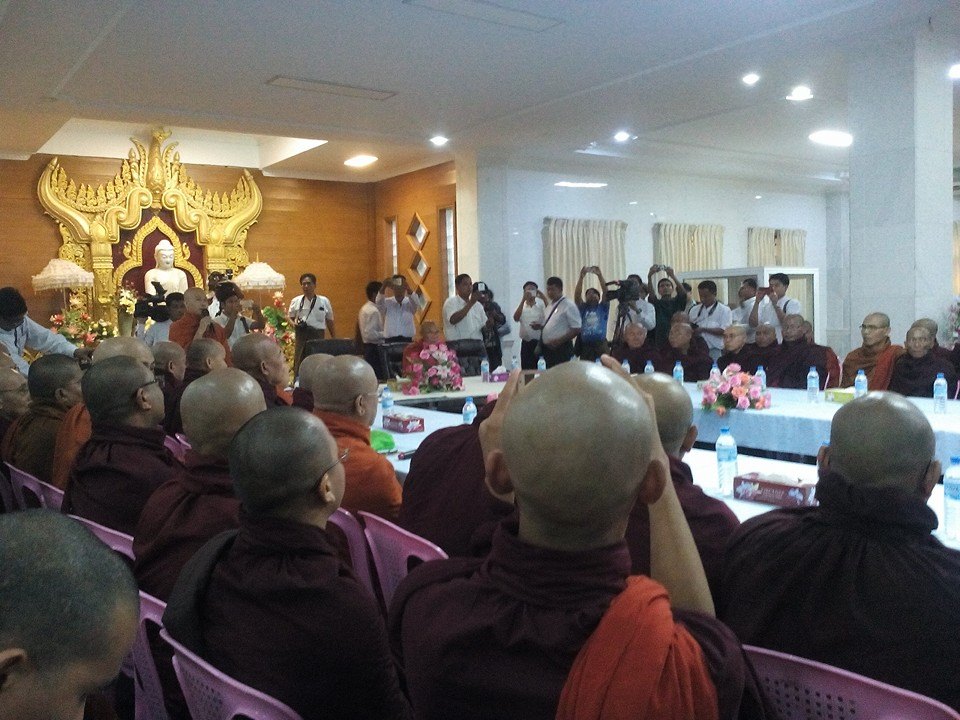The Association for the Protection of Race and Religion, commonly known by its Burmese acronym Ma-Ba-Tha, on Tuesday announced that it considered itself a “Buddhist missionary organisation, made up of monks and laymen who share the same vision”, though not exclusively drawn from the ranks of the Sangha (Buddhist monkhood).
It also urged its members to refrain from staging or organising protests around the country.
The remarks would appear to be in response to a statement by the highest Buddhist order in the land which appeared to question Ma-Ba-Tha’s status.
In its statement on 12 July, the Ma-Ba-Tha claimed it was an official monastic organisation formed in accordance with the National Sangha Maha Nayaka Committee (abbreviated as Ma-Ha-Na) manual and regulations, and the Associations Law promulgated under the 2008 constitution.
[related]
However, the Ma-Ha-Na, which is the highest order of Buddhist clergy in the country, released its own statement on Tuesday, pre-empting the Ma-Ba-Tha, saying that it did not recognise the Association for the Protection of Race and Religion as an official Sangha organisation, nor did it consider that its formation was in line with the Ma-Ha-Na manual.
A passionately Buddhist nationalist group, led by fiery senior monk Wirathu, who is notorious for inciting anti-Muslim sentiment, the Ma-Ba-Tha last week reacted furiously to comments made by Rangoon’s Chief Minister Phyo Min Thein when he said, “We don’t need Ma-Ba-Tha” in Burma.
In letters to Burmese President Htin Kyaw and State Counsellor Aung San Suu Kyi, the hardline Buddhist group demanded an official explanation no later than 14 July.
Meanwhile, Religious Affairs Minister Thura Aung Ko, speaking at a press conference on 9 July, said the Rangoon chief minister was entitled by democratic freedom to express his personal opinion.
On 11 July, photos appeared on Thura Aung Ko’s Facebook page of him meeting with Ma-Ha-Na leaders, leading to rumours that the Buddhist clerics intend ruling on the fate of the Ma-Ba-Tha.



